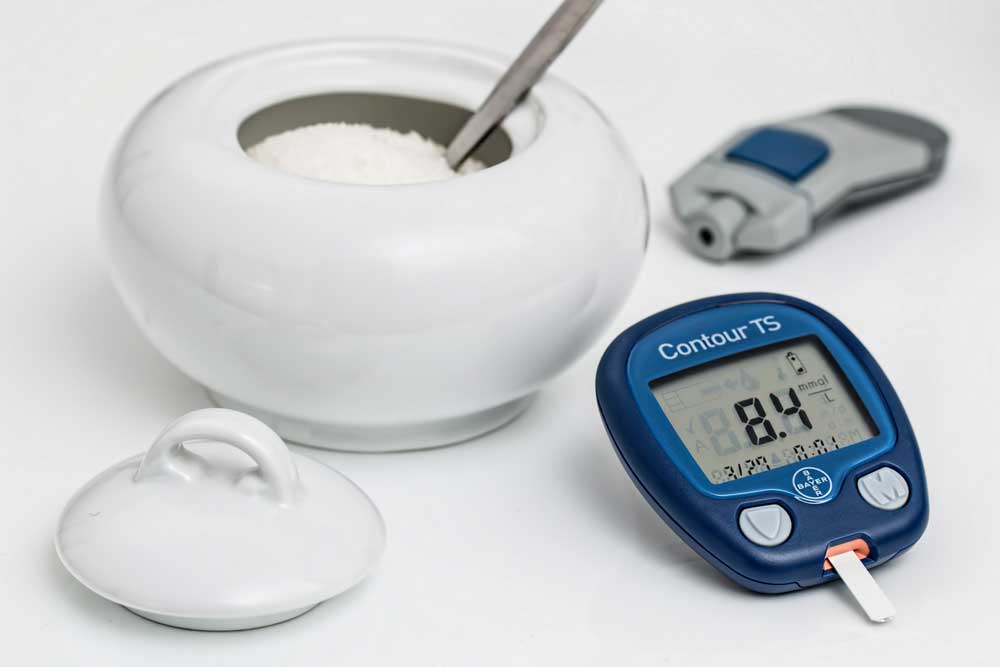When you have diabetes, you have to take care to check your blood sugar levels multiple times each day. You may even have to administer diabetes medication or inject insulin when you notice that your levels are too high or too low.
If you are new to all of this, it can be difficult to figure out what is causing your levels to spike or drop depending on the time of day or what you’ve eaten. You’re not alone. In fact, there are approximately 32.4 people in the United States who have diabetes and have to monitor their glucose levels to get through the day.
Continue reading to learn what causes abrupt changes in your blood sugar levels. You’ll also learn how to better manage blood sugar.
What Affects Blood Sugar Levels?
Several things may play a part in the fluctuation of your blood sugar levels. However, everyone is different. What affects one person might not even affect the next.
Dehydration can cause your blood sugar levels to spike. When you don’t drink enough water, there isn’t enough water in your bloodstream to balance the amount of concentrated glucose that is present in the blood. When this happens, you’ll notice a spike in your blood sugar levels.
Eating carbohydrates at all will cause your blood sugar levels to rise due to them being turned into sugars to give you an energy boost. This is normal. However, eating too many carbohydrates can cause a huge spike making you feel off. Fatty foods may also cause you to feel sluggish and increase your blood glucose level. It can even cause your body to become resistant to insulin.
You may also find that eating too frequently or at the wrong times can cause your blood sugar to fluctuate.
The fluctuation of hormones (due to any number of reasons) can mess with your blood sugar. When you are ill or dealing with an infection, your body will increase hormones (while also increasing blood sugar levels) to fight off the virus or bacteria.
An increase in testosterone for men and estrogen for women can cause an insulin reaction. For women, life events like pregnancy, menstruation, and menopause can cause a fluctuation in hormones causing high blood sugar.
Stress can cause your blood sugar to skyrocket. It can also cause you to develop insulin resistance.
All of these things can cause you to struggle with managing your blood sugar.
Changes In Blood Sugar Levels
Your blood sugar levels may fall in a safe range (70 to 126 mg/dL), but when it’s too high or too low, problems may occur. There are two types of changes that occur when the amount of glucose in the blood isn’t balanced.
Hyperglycemia
When there is too much glucose (more than 126 mg/dL) in your blood, you are experiencing hyperglycemia. In the long term, hyperglycemia can cause issues with kidney and eye disease. Heart attacks and strokes are possible. Long-term hyperglycemia can also cause nerve damage and circulation disorders.
When experiencing hyperglycemia, you might notice:
- Increased thirst (polydipsia)
- Increased hunger (polyphagia)
- Increased urination (polyuria)
- Dry mouth (xerostomia)
- Fatigue
- Anxiety
- Blurred vision
- More infections
- Slowed healing (cuts and sores)
These symptoms occur when:
- You eat too much food
- You don’t get enough physical activity
- You skip doses of medication and meals
- You get stressed
- You are ill or have an infection
Getting your number to come down so that you begin to feel better is very important to your health and wellbeing.
Hypoglycemia
When there is not enough glucose (less than 70 mg/dL) in your blood, you are experiencing hypoglycemia. Hypoglycemia prevents the body from functioning in a normal capacity.
Hypoglycemia symptoms include:
- Sweating
- Shaking
- Hunger
- Dizziness
- Weakness
- Headache
- Fainting
Your blood sugar is likely to drop when:
- You don’t eat enough food
- You overexert yourself with physical activity
- You take too much insulin or diabetes medication
- You drink too much alcohol without eating
In severe cases, it can lead to confusion, seizures, unconsciousness, coma, or even death. Because of the weakness, you may find yourself in a position where you can’t eat or drink and you can’t administer your medications. This can lead to unconsciousness and even death.
How Can You Maintain Safer Blood Sugar Levels?
You will find that maintaining a safe blood glucose level comes naturally when you:
- Drink enough water
- Avoid skipping meals
- Take your medication on time
When you have extremely low blood sugar levels, it’s important to remedy the situation immediately. You can do this by taking glucose tablets, drinking fruit juice or regular soda, or eating some hard candy.
Blood sugar management plays a huge role in your success. You will want to accurately time your intake of food and administering your medication. It’s important to monitor your blood sugar levels, food intake, medication, and physical activity. Writing it down in a journal along with symptoms you may be feeling can help you to keep an accurate record.
You can use the journal to communicate effectively with your doctor and to track how you feel when your glucose levels are out of sorts.
If you are having an issue with regulating your blood glucose levels, Pep2Dia, a patented milk protein hydrolysate, might be able to help you out.
Managing Your Blood Sugar Levels
It’s important to your overall health and wellbeing to manage your blood sugar levels. Make sure you are taking the precautions that you should be to keep your blood sugar at a healthy level… not too low and not too high.
Contact us today for more information on blood sugar management and what you can do to keep yourself within your target level. We’d be happy to answer any questions you might have about using Pep2Dia to help regulate your blood sugar levels.

